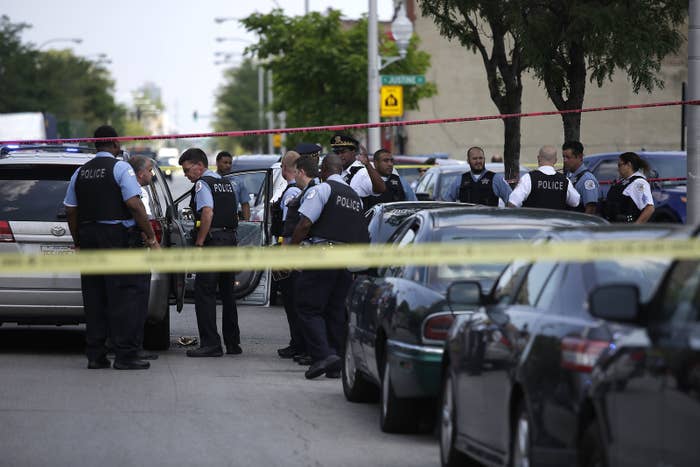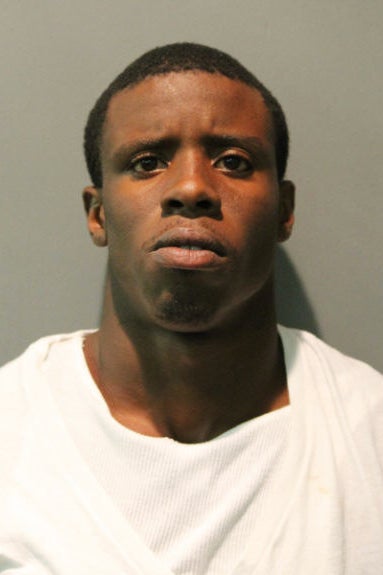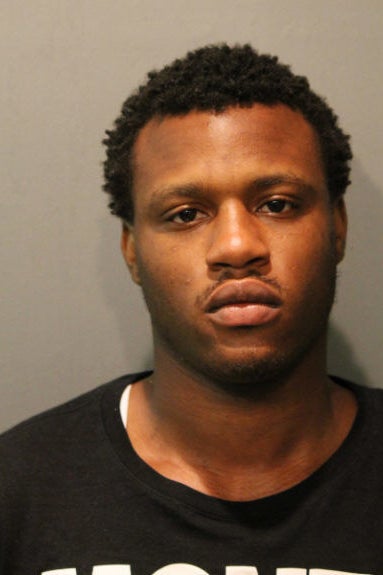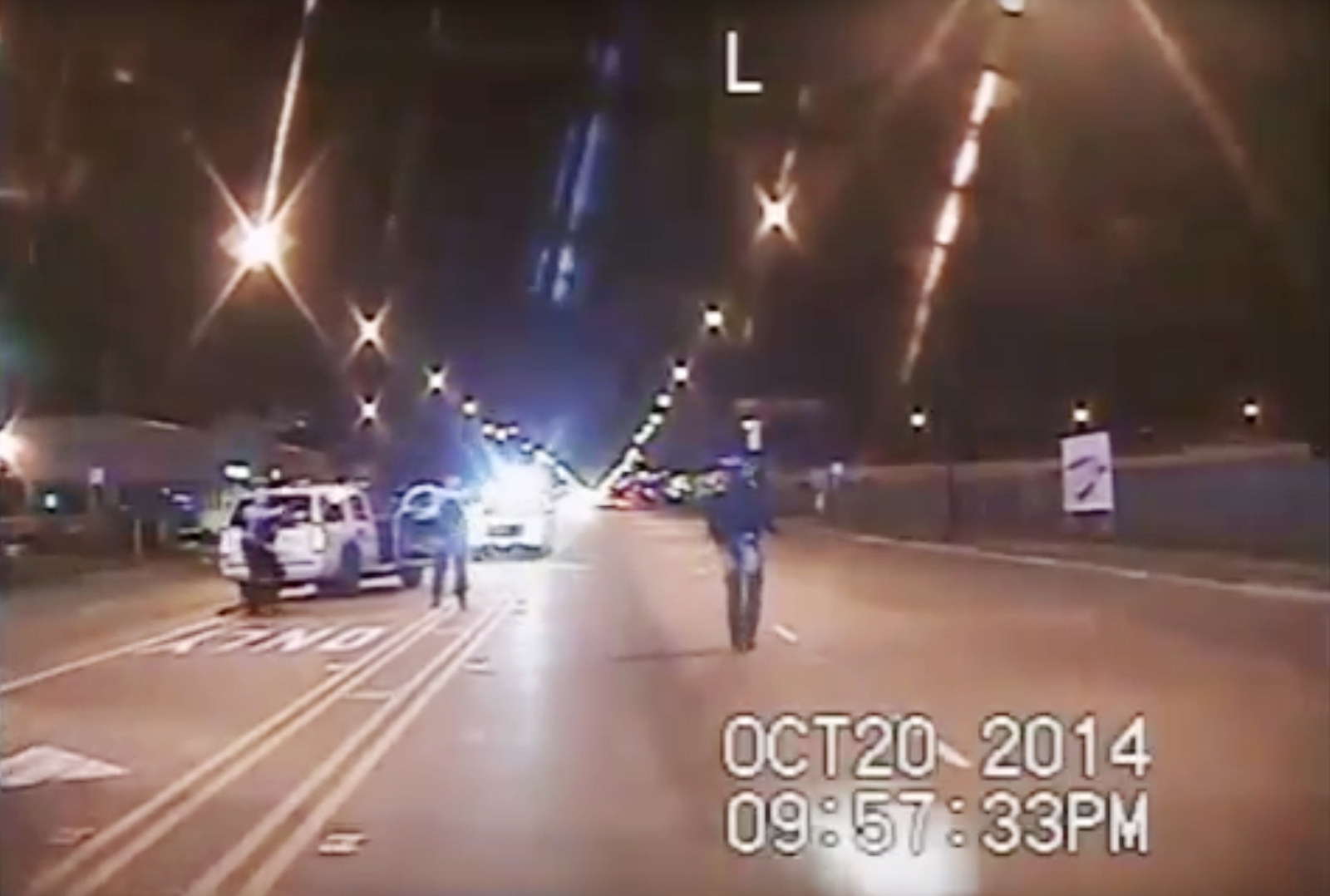
The fatal shooting of Nykea Aldridge in Chicago as she pushed her baby in a stroller last week may have shocked the nation, but it also served as a grim reminder that the city is in the throes of an incredibly deadly year that has so far seen nearly 490 people killed by violence.
The same weekend Aldridge was caught in crossfire, two men were killed and several others wounded in multiple shootings that took place within one 20-minute period. At least 10 people, including Aldridge, were killed over the course of the weekend.
But it was the story of Aldridge, a 32-year-old mother of four and cousin of Chicago Bulls star Dwyane Wade, that grabbed national headlines. In was in the middle of the afternoon and she was walking through Chicago's Parkway Gardens neighborhood to register her kids for school when the gunshots ripped through the air. One bullet struck her in the head.
"This is my baby girl," Diann Aldridge, Nykea's mother, said Sunday. "Her life is gone too soon. Too soon she was taken away from us."
On Twitter, Wade lamented Aldridge's killing, calling it "another act of senseless gun violence."
My cousin was killed today in Chicago. Another act of senseless gun violence. 4 kids lost their mom for NO REASON. Unreal. #EnoughIsEnough
Aldridge's death also added to what has become the city's most deadly month in 19 years, according to the Chicago Tribune. There have been so far more than 400 shootings this month. And as of Monday, at least 79 people had been killed as a result.
The weekend prior Nykea Aldridge's killing, 25 people, including five who died, were shot in a 14-hour period. The weekend before that, five people died and 19 were wounded in shootings.
One of the victims, the son of a police officer, was due to return to college hours later. The 19-year-old was sitting on the porch with a friend when he was shot in what police have said was a case of mistaken identity.
The Tribune reported that so far there have been 487 homicides in 2016 — nearly matching the 12-month total of 491 in 2015. Already, Chicago's gun-related homicide count has surpassed that of New York and Los Angeles combined.
New York City reported 222 shooting homicides through Aug. 21, Los Angeles recorded 176 through Aug. 20.
Chicago police spokesman Anthony Guglielmi said the spike in violence this summer is complex and currently being studied, but acknowledged that it is a major problem.
"The violence in the city is unacceptable and its unacceptably high," Guglielmi told BuzzFeed News.
Guglielmi pointed to what he described as a "lack of accountability around gun crimes" as a major driver of the violence. For example, Guglielmi said, Illinois has no mandatory minimum punishments for gun crimes, creating a "revolving door" of people who commit gun crimes after being incarcerated and released onto the street shortly thereafter.
"This is has been a very complex challenge for the city to grapple with and it’s not something we can arrest our way out of it," he added.
Aldridge's case illustrates the problem, Guglielmi said. One of the two brothers charged with murder in the killing, 26-year-old Darwin Sorrells Jr., was on parole after being sentenced to six years in prison for a gun-related conviction. Guglielmi said Sorrells served less than half of his sentence and was released in February.


Darwin Sorrells, Jr., left, and Derren Sorrells have been charged with first-degree murder in the death of Nykea Aldridge.
He and his 22-year-old brother Derren Sorrells, also charged with murder in Aldridge's killing, were reportedly gang members, the younger with six felony convictions on his record.
Guglielmi said that the vast majority of Chicago's shootings are committed by a relatively small group of offenders — "about 1,400 to 1,500 individuals" — concentrated in just a few police districts on the city's south and west sides. Many are young men enlisted by gangs to "commit brazen acts of violence" using guns as the "tools of their trade."
And the penalties these offenders face, Guglielmi argued, don't function as deterrents.
"We’ve literally done interviews with gang members and they continue to tell us that the penalties imposed by the gang far outweigh what the criminal justice system will do," he said.
Other factors potentially exacerbating the violence include a lack of economic opportunity, Guglielmi said, and tensions between the community and officers. Those tensions are running particularly high due to recent police shootings across the US, including the October 2014 shooting of Laquan McDonald and last month's shooting of Paul O'Neal, both in Chicago.
"No one wants to become the next viral video," Guglielmi added, referring to the effect the footage has had on officers. "These kind of factors have an impact on workforces."

Mayor Rahm Emanuel did not respond to BuzzFeed News' requests for comment on the spike in shootings, but earlier this month spoke about public confidence in police, saying they are "part of the solution."
On Tuesday, Chicago Police Superintendent Eddie Johnson moved to fire the officers involved in McDonald's shooting. And Emanuel is pushing for changes to the way police shootings are investigated.
The Chicago Police Department has also taken measures to address what it sees as the causes of the gun violence. Last month, Johnson partnered with state lawmakers to craft legislation that would more severely penalize criminals with repeat gun convictions. Illinois Sen. Kwame Raoul, the sponsor of the legislation, did not respond to BuzzFeed News' request for comment.
Guglielmi also said that his department has worked to identify potential offenders and victims using an algorithm that analyses risk factors, such as gang affiliation and past convictions. The city is trying to take guns off the street, including 6,000 this year, via a variety of programs.
Despite those efforts, however, the violence has continued to rise.
"We have to really set up that culture of accountability," Guglielmi said. "It’s something the city has to do collectively."
